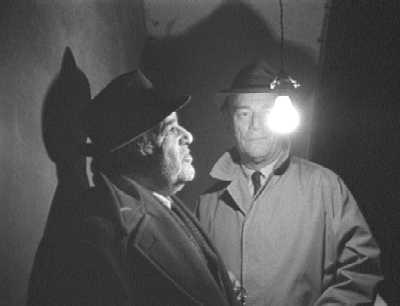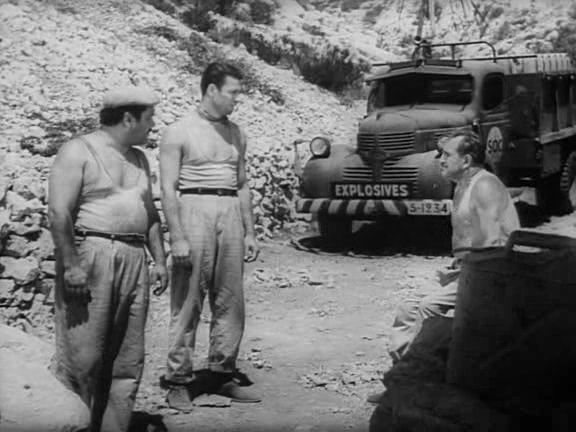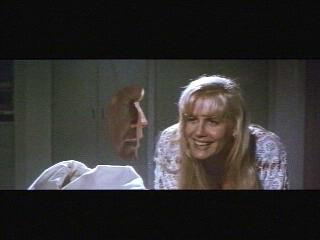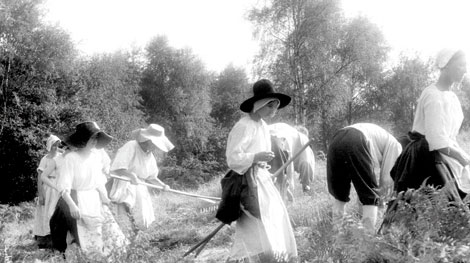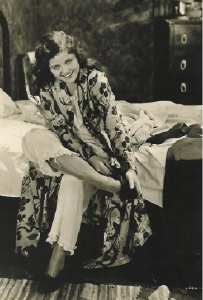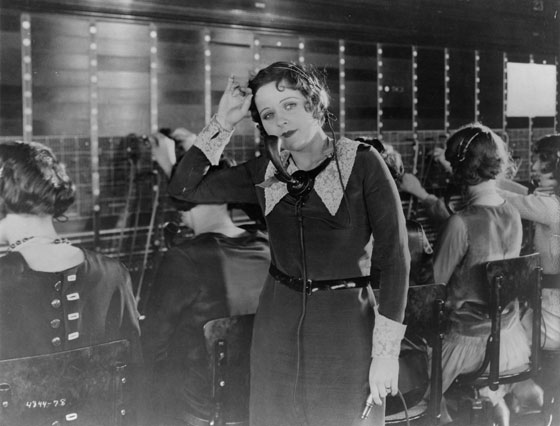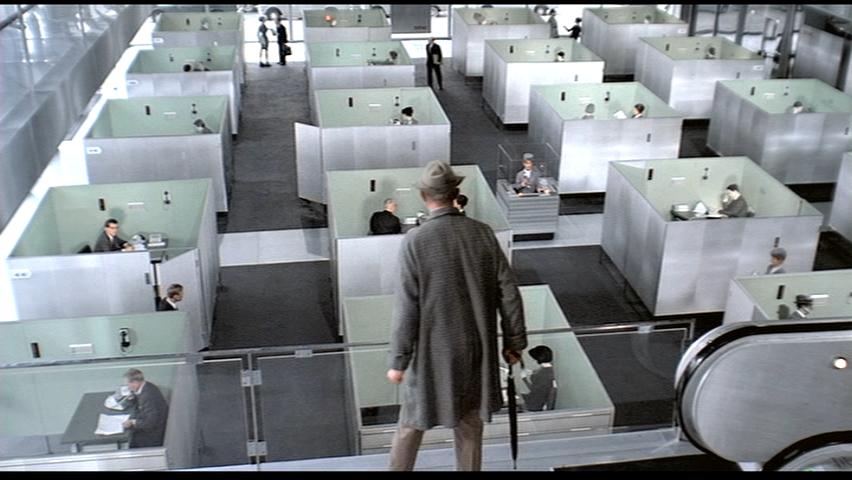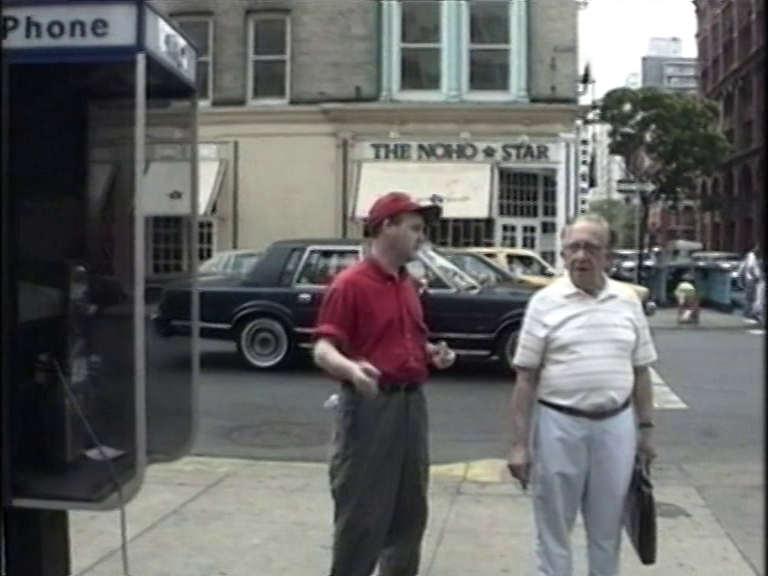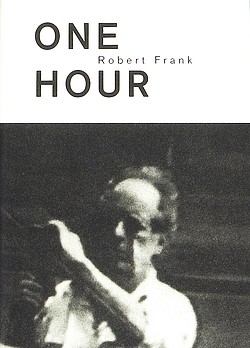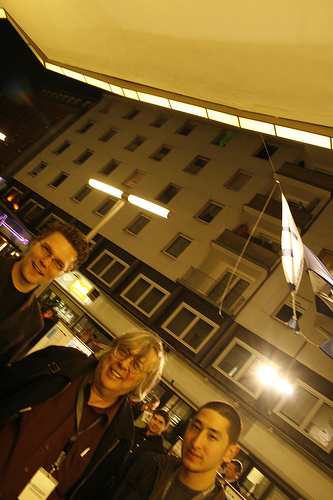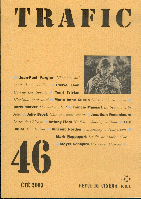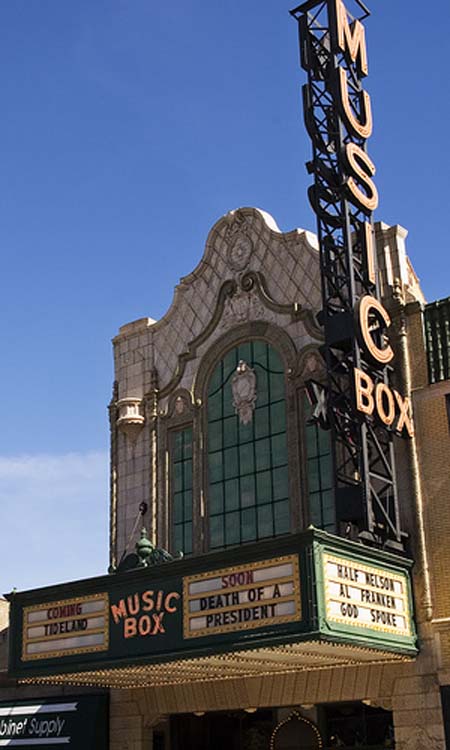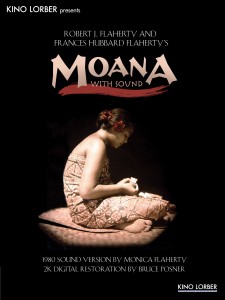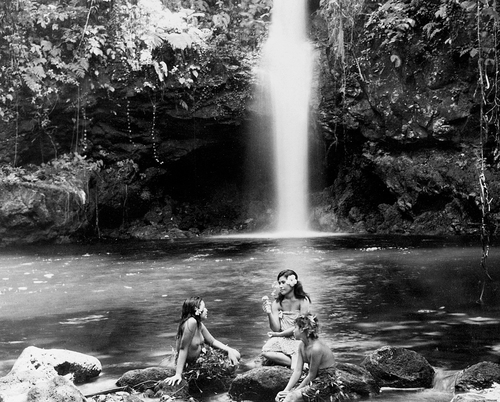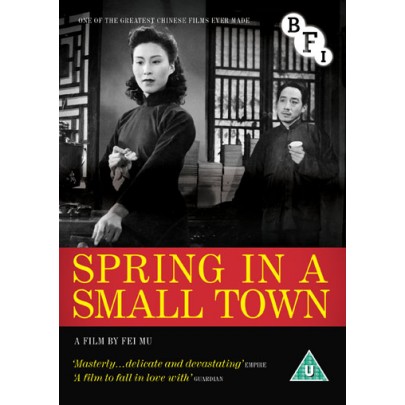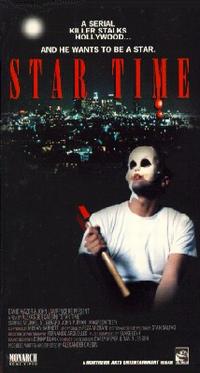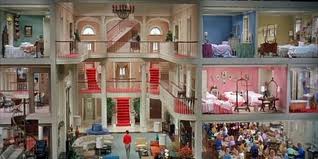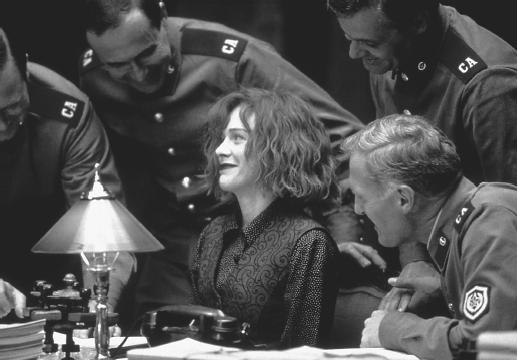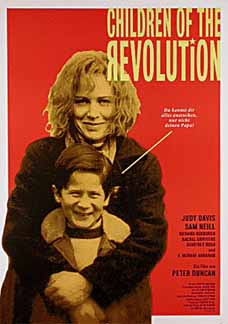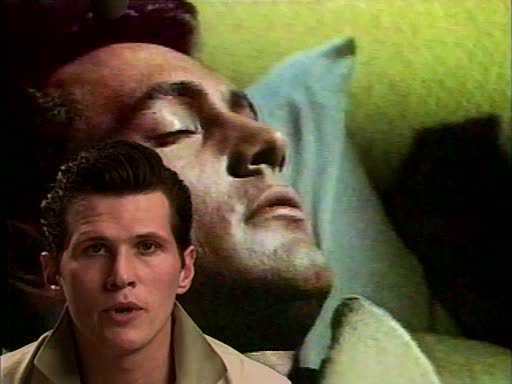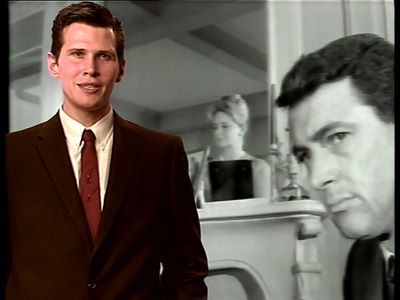Commissioned by Richard Porton and written for (and published by) On Festivals: 03 (Dekalog), edited by Richard Porton, New York: Columbia University Press, 2009. Because of the length of this, I’m running it in two parts. — J.R.
I’m pretty sure the first film festival I ever attended was the third New York Film Festival, at age 22 in fall 1965, to see Alphaville. In 1963, I probably would have attended the first New York Film Festival if I hadn’t transferred from Washington Square College to Bard College, two hours up the Hudson, about half a year earlier. Later that same year, I took over the Friday night film series at Bard, but every once in a while I’d forego one of my own selections in order to take a weekend trip to New York and see something new I was especially curious about; my first looks at Muriel and Dr. Strangelove were during two such excursions. And my curiosity about what Jean-Luc Godard would do with science fiction was enough to persuade me to hop on the train or catch a ride with a classmate. As it turned out, I found the film silly, not really understanding most of its allusions to contemporary Paris or German expressionist cinema. Read more

